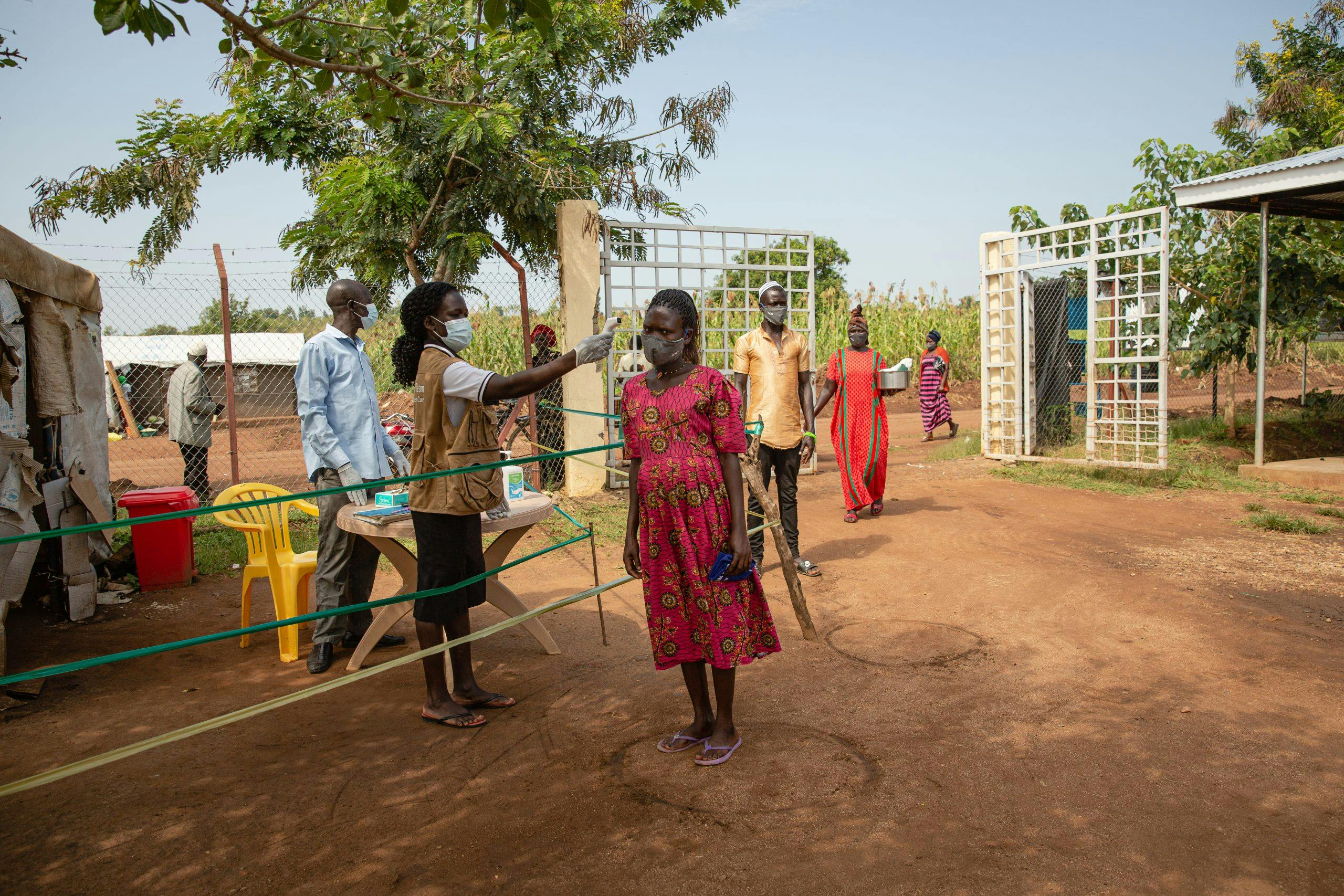Lockdowns during the COVID-19 pandemic mean that many people around the world are left without access to essential health services. With support from the COVID-19 Solidarity Response Fund, the UN Refugee Agency, in collaboration with partners like Africa Humanitarian Action, works to help refugees access the care they need.
Providing Health Solutions during the Pandemic
When Uganda imposed a lockdown in March 2020 to contain the spread of COVID-19, Yakobo Kahesi had to double his community outreach efforts to help sick refugees access health care services in Kampala. The Ugandan capital is home to over 90,000 refugees.
“As a front-line health worker, I made a choice to be out in the community and save lives,” says Kahesi. “But I didn’t stop worrying about the unknown.”
With a background in public health and more than 10 years of experience in working with refugees, Kahesi is serving as a medical operations manager with Africa Humanitarian Action (AHA), a partner organization of UNHCR, the UN Refugee Agency.
With support from UNHCR and the COVID-19 Solidarity Response Fund, AHA was able to help refugees in Kampala access primary health care, tertiary level care, sexual and reproductive health care, HIV/AIDS treatment, and community health services. Their work became even more critical during the lockdown, as patients faced additional challenges to access hospitals and much-needed lifesaving care.

During the lockdown, AHA provided patients with shuttle services between their homes and hospitals and covered the bills of refugees requiring emergency treatment in private health facilities. Kahesi recalls a time when he organized a hospital referral for Agnes, a 50-year-old Burundian who suffered from severe chronic back pain.
“She had reached a point where walking or sitting was no longer possible,” says Kahesi, adding that she could not afford to go to regular checkups as she had lost her job due to COVID-19 restrictions. “I am so happy we could help get to the hospital before it was too late.”
Through UNHCR, the COVID-19 Solidarity Response Fund also helped AHA invest in awareness-raising activities, sensitizing refugees about COVID-19 risks and safety measures. AHA was able to increase the number of Village Health Team (VHT) volunteers to 230 and reach out to refugees in the worst affected urban areas of Kampala. These community-based health workers have played a vital role during the pandemic, sharing lifesaving messages with the communities, reporting positive cases and conducting contact tracing.
Uganda hosts nearly 1.5 million refugees, mostly from South Sudan, the Democratic Republic of the Congo, and Burundi. Some 94% of the refugees live in settlements in northern and southwestern Uganda, while the remaining 6% reside in Kampala. Uganda registered 52,957 COVID-19 cases as of June 5, 2021, including 503 refugees.
The Ministry of Health launched the vaccination campaign in mid-March 2021, aimed at immunizing 49% of the population, including refugees. To date, 706,726 people have received the first dose of vaccine, including 3,905 refugees, 2,036 health workers, 1,940 teachers, and 880 humanitarian workers involved in the refugee response.
More support needed for Vaccinations
Now, more than ever, it is crucial for high-income countries to step up and share doses through the COVAX facility and fully fund the Access to COVID-19 Tools (ACT) Accelerator to ensure that vulnerable populations can get vaccinated as soon as possible.
“I can’t hide that there have been many difficult days,” says Kahesi. “However, my day would always be made when I’d hear of the people we helped get to the hospital, like a mother holding her newborn baby in her arms. Her gratitude at the support we provided makes it all worthwhile.”
This piece was provided by UNHCR’s Wendy Kasujja and has been edited and published with permission.
Featured Photo: Yonna Tukundane/ UNHCR



 View All Blog Posts
View All Blog Posts

